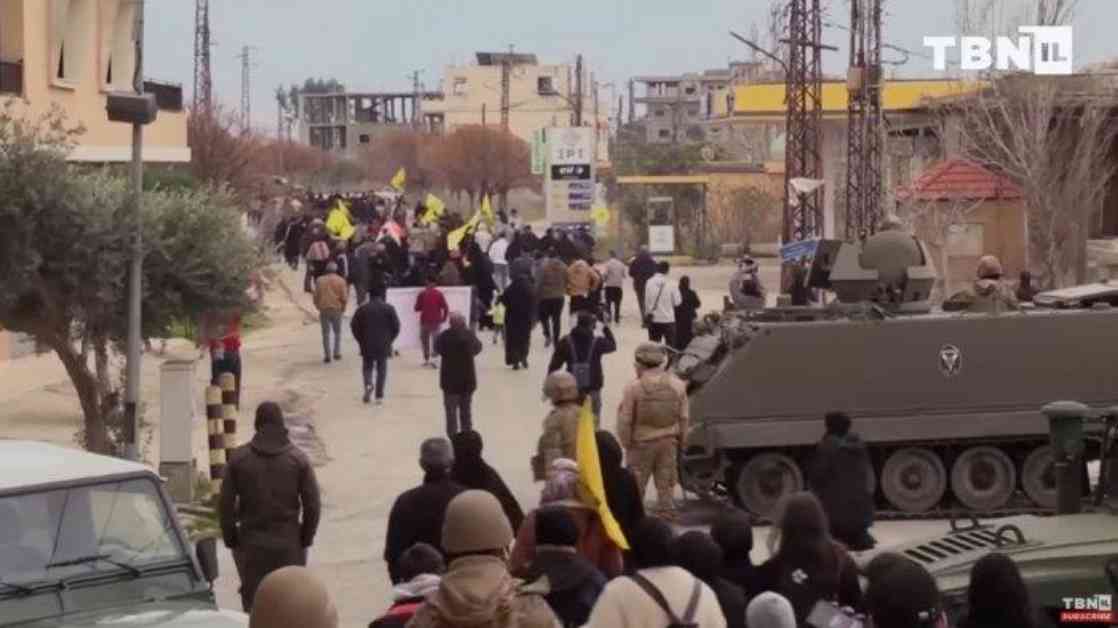Israel Frees Lebanese Hostages, PM Najib Mikati Urges Release of 9 Others
Israel has recently released nine Lebanese hostages under the terms of a ceasefire agreement, marking a significant development in the ongoing conflict between the two nations. Despite this positive step, Lebanon’s Prime Minister, Najib Mikati, is urging Israel to promptly release nine other detainees still held in Israeli custody. In a statement, Mikati expressed gratitude to the International Red Cross Committee for its role in facilitating the release of the nine prisoners of war.
Furthermore, Mikati has called upon the Islamic Revolutionary Guard Corps (IRGC) to assist in the efforts to secure the release of nine additional Lebanese individuals still detained by Israel. Additionally, he has appealed to the United States to leverage its influence with Israel to ensure the liberation of Lebanese citizens still being held captive.
The International Committee of the Red Cross (ICRC) has welcomed the initial wave of releases of Lebanese detainees, emphasizing the importance of humanitarian efforts in conflict zones. A spokesperson for the IRGC reaffirmed their readiness to act as a neutral intermediary in facilitating the release, transfer, and repatriation of individuals detained in connection with the conflict.
Witnesses close to Hezbollah have reported that seven of their fighters were captured during the war. Meanwhile, Israeli forces have detained several Lebanese citizens since Sunday as they attempted to return to their homes in the south without waiting for the completion of the delayed withdrawal of troops. Tragically, Israeli soldiers have also killed 24 returning residents on Sunday and two more on Monday, as confirmed by Lebanese authorities.
Escalating Military Activities Pose Challenges to Return and Recovery
Israel’s military activities have been escalating as the ceasefire, set to conclude on January 26, 2025, approaches its end. The United Nations Office for the Coordination of Humanitarian Affairs (OCHA) has raised concerns about the impact of Israel’s military operations on civilians, disrupting humanitarian efforts and impeding recovery and repatriation operations.
While Israeli occupation forces have withdrawn from certain villages, they have continued military operations, including artillery fire, airstrikes, and the demolition of civilian homes and infrastructure along the border areas. The Office of the High Commissioner for Human Rights (OHCHR) has reported at least 30 civilian casualties since the ceasefire began on November 27, 2024.
Moreover, more than 70 villages in southern Lebanon remain inaccessible due to restrictions imposed by Israel. As of January 23, 2025, the International Organization for Migration (IOM) has documented 112,076 individuals still displaced in Lebanon. Despite 874,949 people having returned home, ongoing hostilities and restrictions have hindered further recovery and repatriation efforts.
Challenges Ahead in Achieving Lasting Peace and Stability
The road to lasting peace and stability in the region remains fraught with challenges, as both sides navigate the delicate balance between security concerns and humanitarian imperatives. The unresolved issue of detainees and the lingering effects of conflict continue to cast a shadow over efforts to rebuild trust and foster reconciliation between Israel and Lebanon.
As the deadline for the withdrawal of Israeli forces from southern Lebanon looms, tensions are running high, with the specter of renewed violence haunting the fragile ceasefire agreement. The international community must remain vigilant and actively engage in diplomatic efforts to prevent a resurgence of hostilities and ensure the protection of civilians caught in the crossfire.
In conclusion, the release of the Lebanese hostages by Israel represents a glimmer of hope in a protracted conflict marred by violence and suffering. The coming days will be critical in determining the trajectory of peace negotiations and the prospects for a sustainable resolution to the longstanding grievances between the two nations. Only through dialogue, cooperation, and a genuine commitment to peace can the cycle of violence be broken, paving the way for a brighter future for all those affected by the conflict.






















